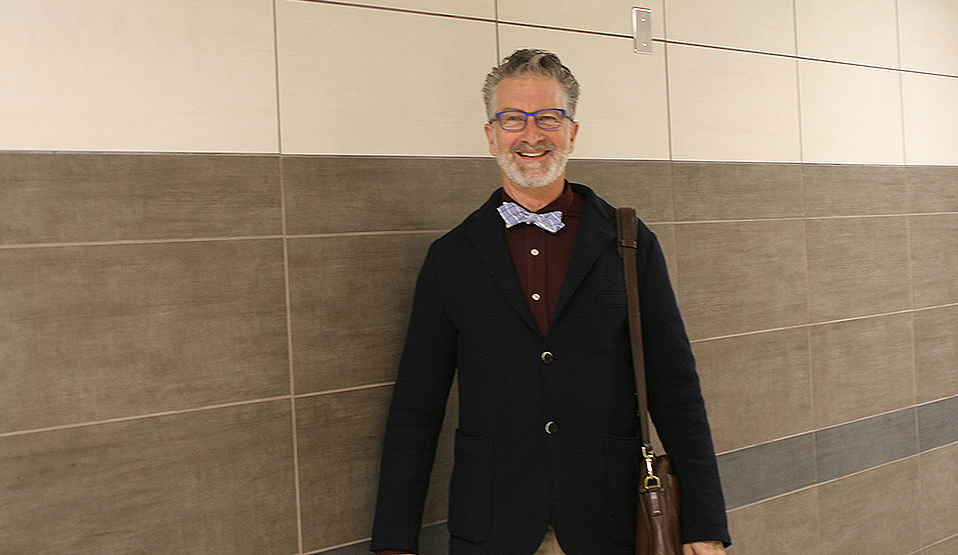
Medical education research and scholarship day a success
The first-ever event gave students and residents the opportunity to showcase research projects and results
By Amanda WoroniukThe Division of Faculty Development held its first-ever medical education research and scholarship day on June 2 in Saskatoon. The event gave faculty, students and residents the opportunity to showcase research projects and results.
The day began with a plenary address from Dr. Doug Myhre, who spoke on successfully juggling medical education research and scholarship as a clinician, educator and administrator. Myhre is the Associate Dean, Distributed Learning and Rural Initiatives, at the University of Calgary’s Cumming School of Medicine. He spent over 27 years as a doctor in Lethbridge before moving to Calgary.
“Fundamentally we can talk about how and what we do with educational scholarship,” said Myhre. He went on to say his staff understand the importance of the ‘why’ in what they do and how that ties into their work. One example he shared was of a staff member’s work in post-grad online learning systems for residents in the north. “The why is what drives you forward. And that’s what you need to do as educational scholars. That’s what makes you get up in the morning and continue doing things.”
Myhre cited a Canadian Association of Medical Education (CAME) white paper that suggested educational scholarship is broader than many people think. It’s an umbrella term that involves taking a body of work, writing it up, delivering and transforming it. He explained that medical education scholarship sits between practical and theoretical, and asked attendees to consider how their work and ideas can be evaluated systematically in a scientific way to support research being publicly disseminated.
“That gives others the opportunity to build on your work. Where medical education research and scholarship lags, is that in the past we have not critically analyzed what we have been doing and published it in a systematic way so that the information is disseminated,” commented Myhre. “And those publications that you are going to deliver – whether it’s posters, oral workshops or paper - gives the agency to others to take your work, adapt it and move into other areas.”
The event gave attendees an opportunity learn about the university’s research resources, including the volume and variety of research support that exists. The day was a success, with over 50 participants, 16 posters, 45 abstracts, three oral presentations and various workshops.
